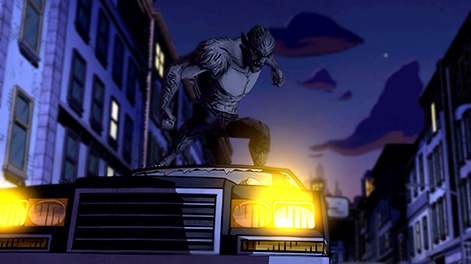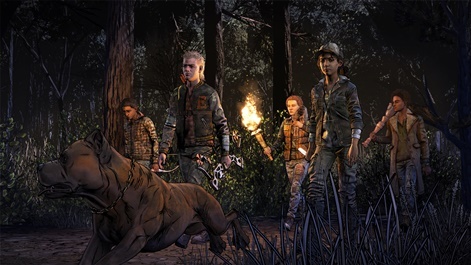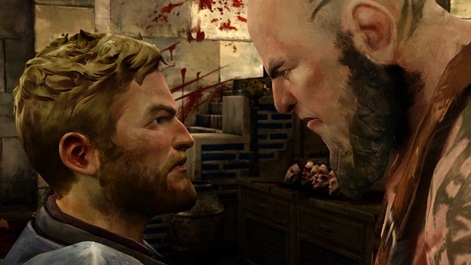The closure of Telltale Games was a shock to many in and out of the games industry.
How could a studio so often praised for its pioneering work in the narrative games space, able to take on hot licenses like The Walking Dead, Game of Thrones and Batman, find itself suddenly laying off most of its talented 250 staff and be set to shut down completely?
Suggested reasons are numerous, including allegations of a toxic management culture that led to departures, and failed, seemingly last-minute attempts to get funding from various sources.
Telltale's fate comes amidst other high profile layoffs and closures, including that termination of Capcom Vancouver and Big Fish Games laying off 15 per cent of its staff, amongst others.
We caught up with our Mobile Mavens about the news to get their opinions on whether Telltale's end is part of wider industry trends, or if it's a self-contained story.
Specifically, we asked:
- What do you think the closure of Telltale Games tells us about the games industry right now? Is it isolated or part of a wider trend?
- Is there still room in the market for narrative-focused episodic games like this?

John is co-founder of PR and marketing company Big Ideas Machine. Also an all-round nice guy...
I honestly think it tells us very little about the industry as a whole and a lot about how not to run a company.
There have been stories about the internal problems at Telltale Games for quite some time. So while the inability to raise more funding may have been the final nail in the coffin, you have to suspect that investment would have been forthcoming if there weren't the well-documented management and staffing issues.
Yes, the industry continues to have problems with overwork and the dreaded crunch, but there are many studios out there which manage to balance the erratic nature of game development with happy and healthy staff.
There absolutely is an audience out there for episodic, narrative-driven games - Telltale proved this. We shouldn't conflate the failure of the business with the failure of the concept.
I feel really sorry for all the staff that are caught up in this and I hope that they all find new work quickly based on the fantastic games they have helped to create.
What John said.
I’d be very cautious about drawing the conclusion that a specific type of content is dead because of layoffs at one studio. Mismanagement, overstretch or a whole host of other reasons could be at play.
While there are cyclical trends in games, you’d do better to create them then follow them.Will Luton
Because of the chaos of our industry people are quick to jump on apparent trends and declare one success as the failure of another.
So battle royale and esports are prophesied as the death of narrative games, yet I’ve seen little to support that theory: Right now Marvel’s Spider-Man and Shadow of the Tomb Raider are first and second in the Ukie games charts. They will no doubt go on to have successful episodic DLC.
Our industry is like under 10s football: Everybody follows the ball. Right now in mobile people are talking about moving away from traditional free-to-play games to build hyper-casual games, which is a model everyone else moved away from in the early days of the App Store.
While there are cyclical trends in games, you’d do better to create them then follow them.
Gutted about this to be honest. The earlier games like The Walking Dead Season 1 and The Wolf Among Us were a big influence for us.
I'm just disappointed with the amount of content they committed to on tight deadlines as opposed to taking their time with releases.

It just appeared to be a case of slapping a new license on the engine every year and overstretching staff working on four different episodes at once, without taking a break to figure out how they could continue to innovate.
The only lesson I'm taking from this is to not grow, overcommit, crunch or oversaturate your own market too quickly. There's definitely a market for episodic narrative games, they just need to be approached in a new way with a passionate, respected and engaged team.
Very sad from a biz and gamer perspective (am a huge The Wolf Among Us fan in particular), but like John and Will said, it’s the story of one company and not an industry.
I’d guess they saw a declining core business over time with diminishing returns from the main audience, while costs mounted up.Jas Purewal
It must have been hard to run that company. Great opportunities to be sure. But it took an estimated $54.4m in outside funding to do it, from serious people – including IDG (a Valley VC known for games investments) and Lionsgate – with serious expectations.
Telltale scaled staff numbers (in the most expensive game dev region of the world) and took on many projects. There were issues, they tried to execute a turnaround with a new CEO and significant redundancies about a year ago.
They were trying to do new things. But I’d guess they saw a declining core business over time with diminishing returns from the main audience, while costs mounted up.
There has been a lot of talk of employees losing out and I feel mostly for them, truly, but I also can’t help but feel a little for the management who couldn’t find a way to turn things around.
Still, it’s early days and no doubt we’ll hear more about what really happened in due course.

I would tend to agree with Will and Dan that it's not a (clear) sign of a type of content struggling.
I would say that it is simply just a very clear reminder of how this industry works: High risk. Medium to low reward. A workforce willing to crunch to their death, because they love what they do.
It is, unfortunately, a very sad but also unspectacular crash, in the sense that it happens a lot in this industry.

I do think, though, that DLC/episodic content will continuously decline in the market. It is simply even higher risk than some of the other monetisation models that are succeeding. Having heavy development cost and little opportunity to adjust the commercial offering is just less attractive than something quick to market that allows for adjustments, pivots and better-managed growth.
I think this is a cautionary tale to the rest of the industry.
Telltale had a hit with The Walking Dead and then went crazy trying to repeat the same success with 16 clones over the following five years. Even the best game design can’t stand up to that level of rinse and repeat.
I think this is a cautionary tale to the rest of the industry.Dave Castelnuovo
They burned out their audience while prematurely growing. None of us really knows whether a different strategy would have worked better for them, but I would have liked to see them leverage the success of The Walking Dead into just a couple of carefully selected licenses that wouldn’t cannibalise each other. Like Minecraft Story Mode, or licenses where they could really push their storytelling to the next level.
But more than that, I would have liked them to see them continue to innovate, find the next critically successful way to tell interactive stories. Or find a way to get back to their roots.
After all, while these latest games are great, they were missing the charm and puzzle qualities that their older games like Sam and Max had.
There are other studios out there, even on mobile, that are working on narrative-driven games and the audience for these types of titles certainly has not waned. Fogbank Entertainment comes to mind, who I know are working on some amazing things.

There have been deeply-sourced reports of the toxic environment that pervaded at Telltale – 18-hour work days for weeks on end, autocratic management and top-down decision making based more on ego than on facts – and this is what I’d point to as a bigger reason for Telltale’s erosion.
Moreso now than ever, the increasingly competitive market demands an agile and iterative development culture, employees that are inspired rather than coerced to work hard, and 100 per cent open communication.
The absence of these things, more than a lack of demand for narrative-driven games, is likely the culprit. Development studios need to be absolutely relentless about weeding out toxic culture agents from within.


























